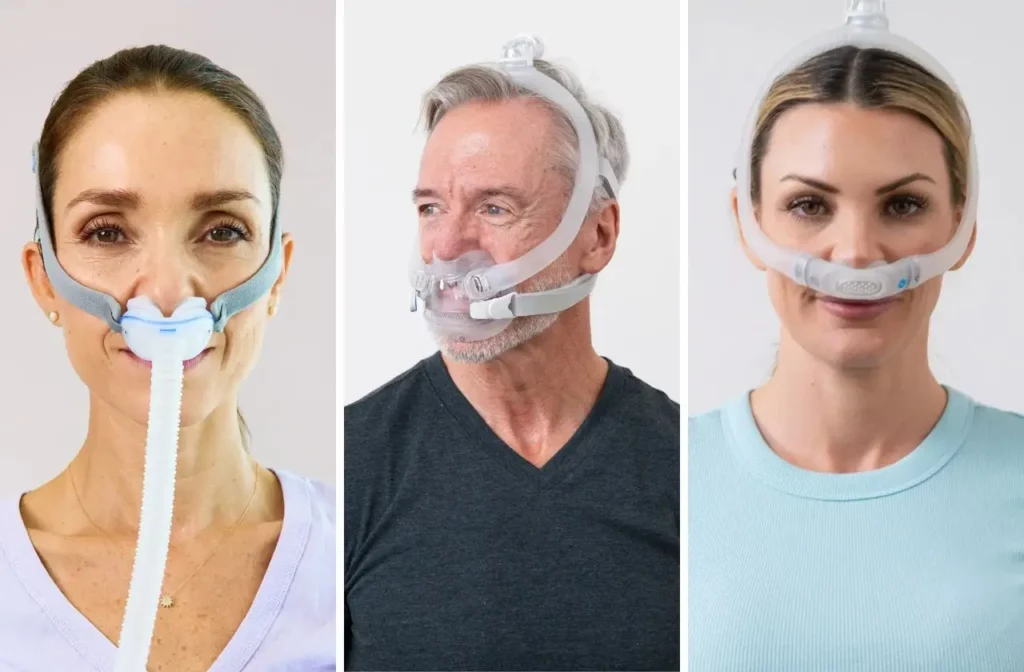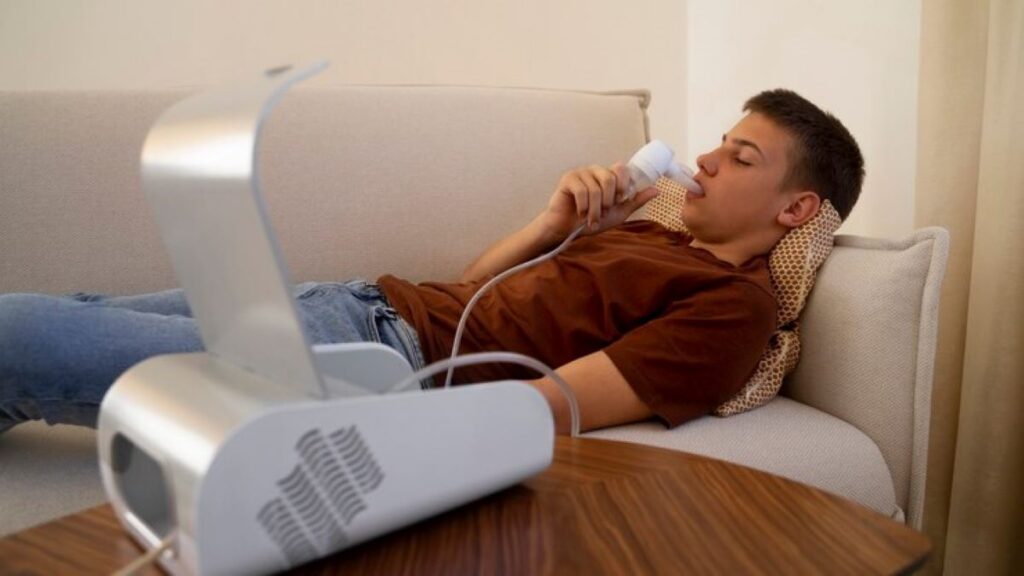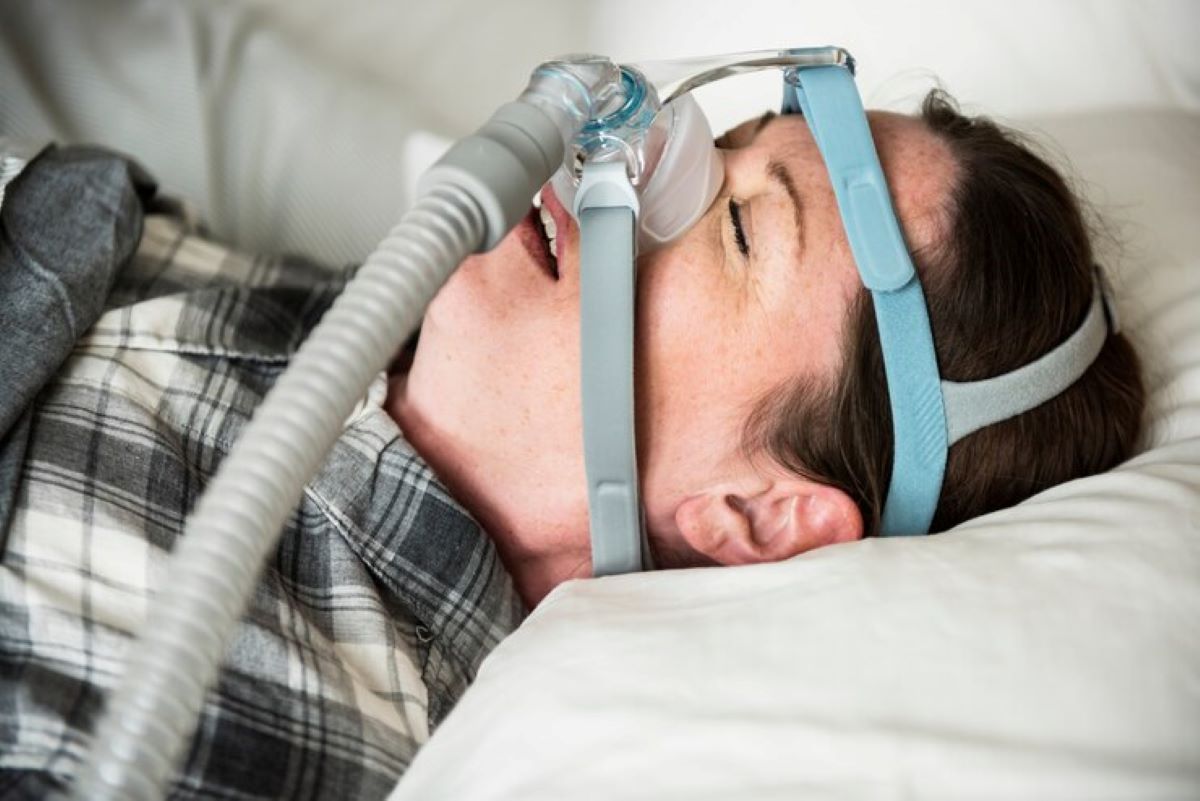What is the Role of CPAP Masks in Treating OSA and How to Choose the Right One in Australia?
CPAP masks deliver continuous positive airway pressure to keep airways open during sleep, making them essential for effective obstructive sleep apnea (OSA) treatment. Without the right mask, therapy adherence drops significantly, leaving sleep apnea symptoms untreated and increasing health risks.
Australians seeking CPAP masks Australia solutions should prioritise two critical factors: comfort and seal quality. A comfortable mask encourages nightly use, whilst a proper seal prevents air leaks that compromise therapy effectiveness. The wrong choice often leads to skin irritation, pressure marks, or disrupted sleep—defeating the purpose of treatment.
Selecting from the Top 7 CPAP Masks Australia for Maximum Comfort and Seal requires understanding your individual needs. Sleep position, breathing patterns, facial structure, and lifestyle all influence which mask type works best. Some users need full coverage for mouth breathing, whilst others prefer minimal contact designs.
We’ve researched the leading options available for sleep apnea treatment in Australia, identifying seven masks that consistently deliver both exceptional comfort and reliable sealing performance. These selections cater to diverse preferences and requirements.
What Are the Main Types of CPAP Masks Available and How Do They Impact Comfort and Seal?
There are three main types of CPAP masks available in Australia. Each type is designed to cater to specific breathing patterns and sleep preferences. By understanding how these designs affect comfort and seal quality, users can make better choices about their therapy equipment.
1. Full Face Masks
Full face masks cover both the nose and mouth, creating a larger seal surface area. This design suits:
- Mouth breathers
- People experiencing nasal congestion
- Those requiring higher pressure settings
Modern compact versions reduce bulk whilst maintaining an effective seal, offering users a clearer field of vision and less facial contact. The trade-off involves a larger cushion that may feel more intrusive, though many users find the secure seal compensates for the increased size.
2. Nasal Masks
Nasal masks rest over the nose only, providing a middle ground between coverage and minimalism. These masks typically deliver excellent seal stability with reduced leak rates compared to their full-face counterparts. Side sleepers particularly benefit from the compact design, which accommodates pillow contact without compromising the seal. The smaller cushion surface creates less facial pressure whilst maintaining therapeutic effectiveness.
3. Nasal Pillow Masks
Nasal pillow masks insert directly into the nostrils with minimal facial contact. This lightweight design eliminates claustrophobia concerns and works exceptionally well for stomach sleepers, active sleepers, and users with facial hair. The direct-to-nostril seal requires precise fitting but rewards users with maximum freedom of movement and virtually no visual obstruction.
Which Features Should Australians Look for to Ensure Maximum Comfort in a CPAP Mask?
Memory foam cushions represent one of the most significant advances in CPAP mask comfort features. These adaptive materials mould to your unique facial contours, creating a personalised fit that reduces pressure points and skin irritation. Memory foam responds to body heat, softening throughout the night to maintain consistent comfort even as you shift positions during sleep.
The availability of multiple cushion sizes directly impacts therapy success. Australian CPAP users have diverse facial structures, and a one-size-fits-all approach rarely delivers optimal results. Quality masks typically offer three to four cushion size options:
- Small – suited for petite facial features
- Medium – the most commonly fitted size
- Large – designed for broader facial structures
- Wide – accommodates those needing extra coverage
Adjustable headgear straps complement proper cushion sizing by allowing fine-tuning of the mask position. Look for masks with four-point adjustment systems that distribute tension evenly across your head rather than concentrating pressure in specific areas.
Soft fabric wraps around cushions provide an additional comfort layer, particularly beneficial for Australians with sensitive skin or those prone to pressure marks. These breathable materials wick away moisture whilst maintaining the essential seal integrity needed for effective therapy. Additionally, exploring different materials used in these fabric wraps could lead to even more personalized comfort solutions.
How Do Seal Quality and Fit Influence CPAP Therapy Success?
CPAP mask seal quality directly determines whether your therapy will succeed or fail. An effective seal prevents air leaks that reduce the prescribed pressure reaching your airways, rendering the treatment ineffective. When air escapes through gaps between the mask and your face, your CPAP machine compensates by increasing pressure, which often creates more leaks and disrupts sleep.
Air leaks prevention starts with proper mask fit. A mask that seals correctly maintains consistent therapeutic pressure throughout the night, allowing your airways to remain open and preventing apnea episodes. Poor seals cause:
- Reduced therapy effectiveness and persistent OSA symptoms
- Eye irritation from air blowing toward the face
- Dry mouth and throat discomfort
- Noisy air escape that disturbs sleep partners
- Skin irritation from over-tightening straps to compensate
The relationship between fit and seal explains why the Top 7 CPAP Masks in Australia for Maximum Comfort and Seal feature adjustable components and multiple cushion sizes. A mask might feel comfortable initially but fail during sleep when facial muscles relax or when you change positions. Quality masks accommodate these natural movements whilst maintaining seal integrity.
Testing your mask’s seal is straightforward: turn on your CPAP machine and feel around the cushion edges for escaping air. Adjust the headgear tension until you achieve a gentle seal without over-tightening, which can create pressure points and paradoxically worsen leaks.
What Are the Top 7 CPAP Masks Available in Australia for Comfort and Seal?
The best CPAP masks Australia offers come primarily from two industry-leading manufacturers: ResMed and Fisher & Paykel Healthcare. These brands dominate the Australian market with innovative designs that prioritise both comfort and seal integrity.

1. ResMed AirFit F30i
This compact full face mask delivers air through a top-of-head tube connection, reducing facial contact whilst covering both nose and mouth. The minimal-contact design suits active sleepers who shift positions throughout the night.
2. Fisher & Paykel Simplus Full Face Mask
Featuring a simple, three-piece design with RollFit XT seal technology, this mask automatically adjusts to different facial contours. The Ergoform headgear distributes pressure evenly across the head.
3. ResMed AirFit N20 Nasal Mask
This nasal-only option includes InfinitySeal cushion technology and integrated padding for the nasal bridge. The soft, flexible frame adapts to various face shapes whilst maintaining seal quality.
4. ResMed AirFit P30i Nasal Pillow Mask
With its top-of-head tube design and dual-wall nasal pillows, this minimalist mask provides freedom of movement. The SpringFit frame automatically adjusts as users change sleeping positions.
5. ResMed AirFit N30i Nasal Cradle Mask
This innovative design sits under the nose rather than over it, combining the benefits of nasal pillows with increased stability. The QuietAir vent technology diffuses exhaled air gently.
6. Fisher & Paykel Vitera Full Face Mask
The RollFit XT seal rolls back and forth on the face, accommodating movement without compromising the seal. VisiBlue headgear highlights make nighttime adjustments easier.
7. ResMed AirFit F20 Full Face Mask
This traditional full face design incorporates InfinitySeal cushion technology with plush memory foam options
How Do Lifestyle Factors Influence the Choice of a CPAP Mask in Australia?
Your daily habits and sleep patterns directly determine which CPAP mask will work best for you. CPAP mask lifestyle considerations extend beyond simple comfort preferences to encompass how you move, breathe, and position yourself during sleep.
The Importance of Sleeping Position
Sleeping position plays a critical role in mask selection:
- Side sleepers benefit from nasal masks or nasal pillow masks, which minimise contact with pillows and reduce the risk of mask displacement
- Back sleepers can comfortably use any mask type, though full face masks often work particularly well
- Stomach sleepers find nasal pillow masks ideal due to their minimal profile and reduced interference with face-down positioning
Active Sleepers and Their Needs
Active sleepers who frequently change positions throughout the night require masks with flexible tubing and secure headgear. Compact full face masks like the ResMed AirFit F30i feature top-of-head tube connections, allowing greater freedom of movement without tangling or disconnection.
Facial Hair and Its Impact on Mask Selection
Facial hair presents unique challenges for maintaining an effective seal. Nasal pillow masks typically perform better for bearded users, as they create a seal within the nostrils rather than against facial skin. Those who wear glasses or enjoy reading before bed appreciate nasal pillow masks and nasal masks, which don’t obstruct vision or interfere with eyewear.
The Role of Mouth Breathing in Mask Choice
Mouth breathing necessitates full face mask options to prevent air leakage and maintain consistent therapy pressure throughout the night.
What Additional Considerations Should Be Taken Into Account When Selecting a CPAP Mask?
Can specific health conditions affect your CPAP mask choice? Yes—CPAP mask allergies, skin sensitivities, and chronic nasal congestion require targeted mask features to maintain therapy effectiveness.
Users with sensitive skin or latex allergies should prioritise masks with soft fabric cushions or memory foam rather than traditional silicone. Many of the Top 7 CPAP Masks in Australia for Maximum Comfort and Seal offer hypoallergenic materials designed to reduce irritation during extended wear. Visit https://pmc.ncbi.nlm.nih.gov/articles/PMC7640631/ to get about the importance of mask selection on Continuous Positive Airway Pressure outcomes for Obstructive Sleep Apnea.
Humidification options become essential for Australians dealing with allergies or nasal congestion. Full face masks paired with heated humidifiers deliver moisture-rich air that soothes inflamed nasal passages and prevents dryness. Some newer HME (heat moisture exchange) masks provide built-in humidification without requiring water chambers.
Facial hair presents another challenge—beards can compromise seal quality on traditional masks. Nasal pillow designs bypass this issue by inserting directly into nostrils rather than relying on facial contact points.
Magnetic clips found in certain masks pose risks for patients with pacemakers or magnetic implants. Non-magnetic alternatives are available from manufacturers like ResMed and Fisher & Paykel Healthcare.

Conclusion
Choosing the best CPAP mask in Australia requires matching your unique sleep style and health needs with the right design. The Top 7 CPAP Masks in Australia for Maximum Comfort and Seal offer proven solutions, yet individual experiences vary significantly.
Trial different masks from leading brands like ResMed and Fisher & Paykel to discover which delivers optimal comfort and seal quality for you. Consider your sleeping position, facial structure, breathing patterns, and any specific health conditions when making your selection.
Speak with your sleep specialist or CPAP supplier about mask trial programmes available across Australia. Finding your perfect match transforms CPAP therapy from a nightly struggle into restful, restorative sleep—making the effort to test multiple options worthwhile for long-term treatment success.
More to Read : Can You Buy a CPAP Mask Online Without a Prescription?
FAQs About CPAP Masks in Australia
A CPAP mask delivers steady air pressure to keep your airway open while sleeping, treating obstructive sleep apnea effectively.
2. Which type of CPAP mask is best for side sleepers?
Nasal or nasal pillow masks work best for side sleepers because they’re lightweight and less likely to shift during the night.
3. How often should I replace my CPAP mask?
Most CPAP masks should be replaced every 6 to 12 months to maintain a secure seal and proper hygiene.
4. What is the most comfortable CPAP mask in Australia?
Many Australians find the ResMed AirFit N20 and AirFit F30i among the most comfortable due to their soft cushions and minimal design.
5. How can I prevent air leaks in my CPAP mask?
Ensure the headgear fits snugly, adjust cushion size properly, and clean the mask regularly to prevent leaks.
6. Can I use a CPAP mask if I have a beard?
Yes, but nasal pillow masks are ideal for bearded users since they seal inside the nostrils, not against facial hair.
7. Do CPAP masks cause skin irritation?
Sometimes, but using memory foam cushions or soft fabric wraps helps reduce irritation and pressure marks.
8. What is the best CPAP mask for mouth breathers?
Full face masks like the ResMed AirFit F20 or Fisher & Paykel Vitera are best for mouth breathers.
9. Where can I buy CPAP masks in Australia?
You can purchase CPAP masks from Australian suppliers such as ResMed, Fisher & Paykel, or certified online medical retailers.

